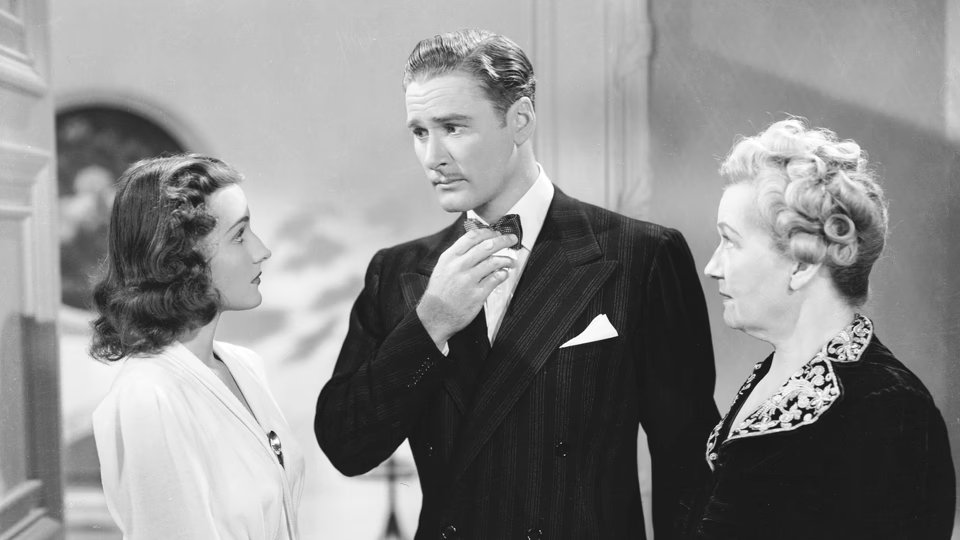Footsteps in the Dark

Errol Flynn plays a wealthy investment manager who moonlights as a mystery writer. That’s it. That’s the scandal.
No wonder this 1941 Warner Bros. programmer plays like watching paint dry. Flynn’s Francis Warren sneaks away from board meetings to dictate pulp novels while chauffeur Allen Jenkins pecks away at a typewriter. The movie treats this double life as if he’s running guns to the Resistance. He’s writing books.
When a shady jewel dealer threatens to expose Warren’s literary hobby and promptly turns up dead, Flynn must solve the murder to clear his name. He’s terrible at it. Every hunch is a wild guess that pays off only because the screenplay wills it so. He withholds evidence from the police—whom he constantly mocks—then pats himself on the back for staying one step ahead. That’s not detective work. That’s obstruction of justice.
Warner clearly wanted its own Thin Man, reuniting Flynn with Brenda Marshall (from The Sea Hawk) and Alan Hale (The Adventures of Robin Hood) in a contemporary crime comedy. But William Powell’s Nick Charles had underworld grit and electric chemistry with Myrna Loy. Flynn just lies to his wife for 90 minutes while she worries he’s having an affair. There’s no sparkle, no wit, no danger.
Flynn does what he can. A scene where he impersonates a Texas oilman to quiz a ditzy showgirl has promise. But you can imagine Powell doing it better with a wink and a martini.
The mystery telegraphs its solution from reel three. Director Lloyd Bacon can’t find the pace. The whole enterprise feels padded, listless, uninspired.
One moment works, but for all the wrong reasons: Flynn visits the dentist for a tooth extraction. The dentist shoots him full of novocaine, then offers him a cigarette. The two smoke together, waiting for the numbness to set in. It’s absurd. It kills the momentum. But I laughed.
That scene tells you everything about this movie. It doesn’t know when to move and when to linger. Flynn deserved better. So do we.